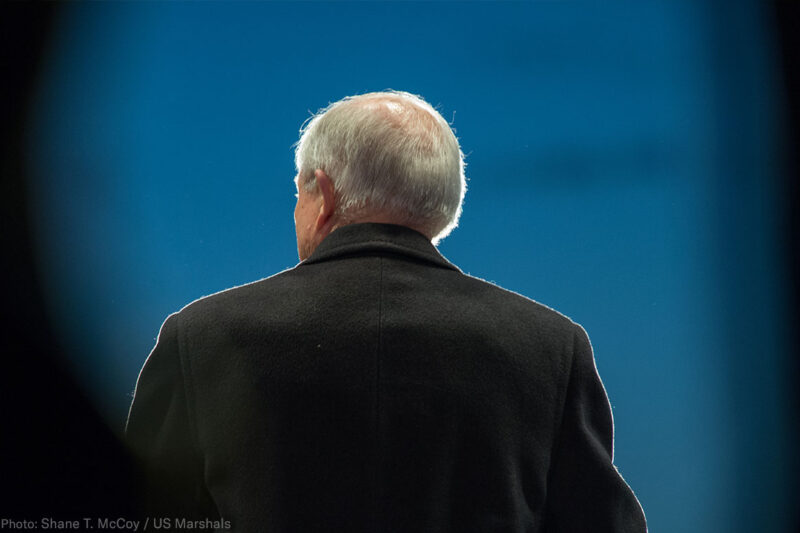
This piece originally appeared at The Daily Beast.
For decades, politicians competed to see who could push the most draconian criminal justice policies. Jeff Sessions's announcement this month that he would authorize federal prosecutors to go after pot even in states where it is legal seems ripped straight from that playbook. But the “tough on crime” attorney general may be in for a surprise. In 2018, it turns out, demagoguery about crime no longer packs a political punch. In fact, support for reform may prove to be a sleeper issue in 2018 and 2020.
This would be a big change. Candidates most prominently began to compete on crime in the tumultuous 1960s. Richard Nixon won with ads showing burning cities and scowling young men, ads crafted by an unknown aide named Roger Ailes. Ronald Reagan launched a “war on drugs.” George H.W. Bush won in 1988 with notorious ads telling the story of Willie Horton, who was allowed out of prison under a weekend furlough program. Bill Clinton in 1992 bragged of his support for the death penalty. These chest-thumping themes were echoed in hundreds of campaigns down the ballot each year.
Politics driven by fear of crime had direct, destructive social costs. Today, with just under five percent of the world’s population, the U.S. has nearly 25 percent of its prisoners. Black communities bear the brunt, with one in four Black men serving time during their lifetimes.
Over the last decade, a bipartisan movement has arisen to push back and revise criminal justice policy. Throughout 2016 it made real strides. Black Lives Matter and advocates brought national awareness. The Democratic and Republican parties included reducing imprisonment in their platforms — a stark reversal of past policy. Every major candidate for president — with the exception of Donald Trump — went on the record supporting justice reform.
Then came the startling rise of President Trump. In his inaugural address, he warned of “American carnage” and rampant crime. His attorney general, Jeff Sessions, had killed the bipartisan sentencing reform bill as a senator. Now, at the Justice Department, he is piece-by-piece dismantling his predecessors’ efforts to reduce federal imprisonment rates. This has chilled the artery of many politicians once eager to support reform efforts in Washington.
For Trump and Sessions, it seemed, it was still 1968. They are waging traditional scare politics. But something unexpected happened on the way to the backlash.
Lawmakers in blue and red states alike pressed forward with reforms. In 2017, 19 states passed 57 pieces of bipartisan reform legislation. Louisiana reduced sentences. Connecticut modernized bail. Georgia overhauled probation. Michigan passed an 18-bill package to reduce its prison population.
And in the 2017 elections, candidates won on platforms that proactively embraced justice reform. In Virginia, for example, gubernatorial candidate Ed Gillespie defined his campaign by running modern day “Willie Horton” ads against Ralph Northam for restoring the right to vote to former prisoners, and branded him as “weak” on MS-13. Voters handed Northam a sizeable win. In deeply conservative Alabama, Doug Jones campaigned on criminal justice reform. Trump repeatedly attacked Doug Jones as “soft on crime.” But Jones beat Roy Moore.
Urban politics have been transformed, too. District attorneys campaigning on reducing imprisonment are winning across the nation, most recently in Philadelphia. Justice reform proved a powerful organizing issue among the young and in communities of color.
There’s a reason that candidates who embrace a criminal justice reform platform do well. Ninety-one percent of Americans support criminal justice reform, with two in three Americans (including 65 percent of Trump voters) more likely to vote for candidates who support reducing imprisonment. An even higher percentage support an end to mandatory minimums, and 64 percent of Americans support marijuana legalization (including 51 percent of Republicans).
All of this creates a real political opening for politicians ready to act with just a modicum of courage. If Democrats want to demonstrate care for Black communities, they should campaign on ending mass incarceration. Polls show this is a winning issue for Republicans too. Trump and Sessions lie far out of the mainstream. At the federal level, candidates can support the Sentencing Reform and Corrections Act and the Reverse Mass Incarceration Act. At the state level, they can support ending imprisonment for many crimes, shortening sentences for others, reforming drug laws, turning felonies into misdemeanors, and ending cash bail.
To be sure, the public still worries about crime. After the police protests, conservatives claimed that a “Ferguson effect” was causing police to pull back, leading to a reversal of long-term trends toward greater public safety. But new statistics show that that spike was just that: a temporary twitch upward, with crime headed back down in 2017. And states over the last decade have shown crime and incarceration can be reduced together.
For decades, like death and taxes, tough-on-crime politics seemed as if it would always be with us. Crime scare ads have lost their potent power. Criminal justice reform turns out to be a political winner.
Inimai Chettiar is director of the Justice Program at the Brennan Center for Justice at NYU School of Law. Udi Ofer is the deputy national political director and director of the Campaign for Smart Justice at the American Civil Liberties Union.

